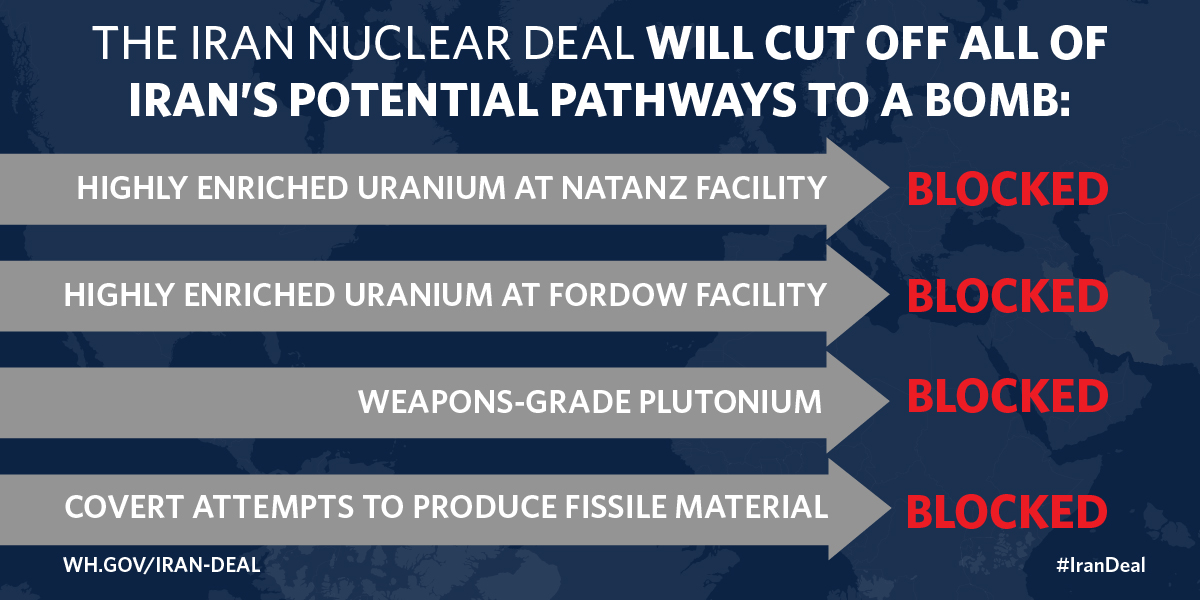US Admits Iran Is Not Building a Nuclear Bomb
Ted Snider / AntiWar.com
(November 4, 2022) — America’s top diplomat for negotiating a nuclear deal with Iran said on October 30 that the US is not going to “waste time” trying to keep the Joint Comprehensive Plan of Action (JCPOA) nuclear deal alive.
President Biden’s special envoy for Iran, Robert Malley, said that “It is not on our agenda. We are not going to focus on something which is inert when other things are happening…and we are not going to waste our time on it… if Iran has taken the position it has taken.”
Apparently reading from the script, Malley insistence that “we are not going to focus” on the negotiations echoes earlier statements from the State Department. On October 12, State Department spokesman Ned Price used the same formulation, saying that the negotiations are “not our focus right now.”
The Biden administration has walked so far away from the negotiations that another senior US official recently said that because of Iran’s response to protests and because of its support for Russia in the war in Ukraine, “even if Iran came back to the table today and said it wanted a nuclear deal, the U.S. was unlikely to move forward.”
That senior Biden official went on to say that the US is virtually considering the deal dead and is “taking steps to ensure the US has a ready military option.” Malley, while denying that diplomacy is totally dead, echoed those words too, declaring that Biden “is ready to use military means as a last resort to prevent Iran from acquiring a nuclear weapon.”
The US is not wasting its time renegotiating the JCPOA nuclear agreement with Iran because of Iran’s response to protests or because Iran is supporting Russia. Were Iran developing a nuclear weapon, it would be worthwhile negotiating a nuclear agreement to prevent it from getting one whatever its position on protests or Russia.
The US is wasting its time renegotiating a nuclear agreement to stop Iran from developing a nuclear bomb because the US has admitted that Iran is not developing a nuclear bomb.
On October 27, after a long delay, the US Department of Defense finally released its Nuclear Posture Review. The review contained a bombshell that failed to explode in the media because it was understandably lost in the glare of three other bombshells that the Secretary of Defense dropped.
The US insistence that it would use a nuclear weapon in a first strike, that it would use a nuclear weapon in the face of a conventional threat and that it would use a nuclear weapon, not only to defend itself, but to defend an ally were colossal enough to draw all the attention.

But that meant that what went unnoticed was the colossal admission that Iran is not even building a nuclear weapon nor has it even made a decision to pursue one. The Nuclear Posture Review makes that admission, not once, but twice. And the admission is made again in the National Defense Strategy in which it is included.
The Nuclear Posture Review first says that “Iran does not currently pose a nuclear threat but continues to develop capabilities that would enable it to produce a nuclear weapon should it make the decision to do so.” It then formulates the truth about Iran in the greatest clarity: “Iran does not today possess a nuclear weapon and we currently believe it is not pursuing one.”
If the US knows that Iran does not posses a nuclear weapon and does not even believe that it is pursuing one, then why the threats, assassinations, sabotage and sanctions? Why are Iranian people being starved, scientists and generals being killed, nuclear plants being crippled and war being threatened?
If the US is concerned that Iranian nuclear activities are continuing, then they should not abandon the renegotiation of the JCPOA nuclear agreement, but return to it, since they admit in the Nuclear Posture Review that these activities were “previously constrained by the Joint Comprehensive Plan of Action (JCPOA).”

Prior to the US illegally pulling out of the JCPOA, Iran was in full compliance with its JCPOA commitments. Eleven consecutive International Atomic Energy Agency reports verified that Iran was completely and consistently in compliance with their commitments under the agreement.
Iran only started slowly and reversibly going beyond the limits prescribed by the JCPOA long after the US had ended their legal requirement to comply by illegally leaving the agreement.
Why sanction Iran and abandon the JCPOA negotiations when Iran is neither possessing nor pursuing a bomb and when Iran’s actions of concern were constrained by, and can be constrained again by, the JCPOA agreement that the US is abandoning?
The absurdity of Malley’s recent statement is revealed by the Nuclear Posture Review. It is a waste of time to negotiate a deal to stop Iran from developing a weapon that the US believes it is not pursuing. It is not a waste of time to renegotiate an agreement that “previously constrained” the very activities the US hopes to constrain.
Posted in accordance with Title 17, Section 107, US Code, for noncommercial, educational purposes.
